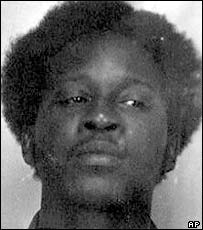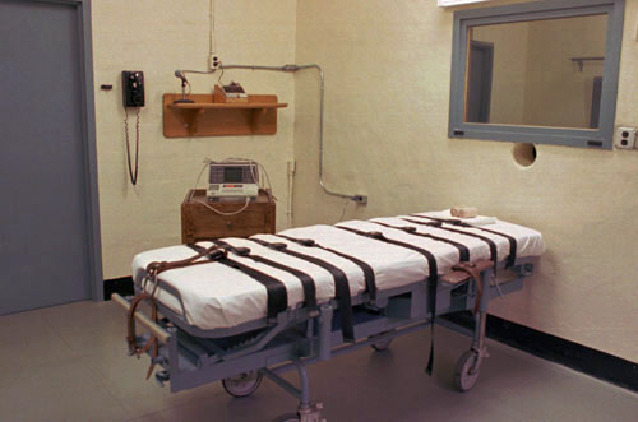Death Penalty: A Faulty Expense
The death penalty has no clear benefits for the state of Nebraska
December 20, 2018
The prison guards escorted the convicted inmate into the stainless pearly chamber and forced him down onto the table, the leather straps abrading his sweaty skin. He lay in the middle of the room, observing the heavily tinted glass that surely had spectators. Minute sweat drops began to cover his face, agitating the bridge of his nose. The fluorescent light slightly blinded him as his arm was swabbed with alcohol and inserted with IVs. After some preparation, a prison staff member injected a needle into his arm, killing him over the course of a few minutes.
Larry Griffin was convicted of murdering Quintin Moss and received the death penalty in 1995. However, an investigation done by Sam Gross almost 10 years later found he might have been innocent. It added to a list of 39 wrongful executions (executions happening in the face of evidence of innocence) carried out in United States.

The death penalty has been a fiery debate in the US as of late. Many want justice for those who killed innocent civilians, but others say the execution of any citizen is cruel. The argument is difficult to figure out because it usually deals with the individual morals of Americans, however there is a clear factor that separates the two sides.
The Death Penalty Information Center states the cost of the death penalty varies from state to state, but a study done by Creighton University economics professor Ernest Goss in 2016 found Nebraska spends 14.6 million dollars to maintain the death penalty. The study also showed taxpayers pay 1.5 million dollars more for every death penalty prosecution than a life without parole prosecution and the system costs 23.2 million dollars more per year than alternative sentences. That is backwards considering how Nebraskans voted for a governor that promises to reduce taxes, but also support a tax-consuming system.
However, only 119 inmates in Nebraska have sought death from 1973-2014 and 33 were handed death sentences. 13 of those had their sentences reduced, 6 died in prison, 1 sentence was vacated and only 3 were executed, with 10 still appealing. Carey Dean Moore was also executed earlier this year, proving Nebraskans still support this system. The state is spending a hefty chunk of capital to keep a system that has not done much over the span of 4 decades.
The state spends 3.54% of its state budget on criminal justice functions, compared to states without the death penalty using 2.93%. That does not sound like a drastic change, but Nebraska’s state budget is $9,191,627,418 as of June 2018. The difference in 0.61% would result in $56,068,927.50 to spend on other state needs. More funding could be given to the financially strained Millard district and used to repair the dozens of potholes that litter Omaha streets, which it should. From a financial standpoint, the death penalty only hurts Nebraska. It sucks up tons of taxpayer money and uses state budget that could be utilized to aid schools and repair broken down streets. The people who elected Pete Ricketts, an adamant supporter of lower taxes, should not be supporting a tax-absorbing system.
Except one.
This debate truly stems from a place of moral value. Many want justice for the families that lose a member due to a crime. It is a natural impulse to want revenge or justice for those deceased, but in many cases, the death penalty does not provide that.
Take the Heath family from Arkansas. Julie Heath was killed on Oct. 3rd, 1993 and Eric Randall Nance was arrested and later executed. Many assumed this provided closure for the family.
“But after Heath’s murder, Crites [a member of the Heath family] said her family fell apart. Her mother, aunt and grandmother were all diagnosed with depression and needed medication,” PBS writer Laura Santhanam reported. “When Nancy Heath — her aunt and Julie’s mother — hugged Crites, she ran her fingers through Crites’ hair, long like her dead cousin’s; she held her tight, Crites said, as if she were ‘just trying to get a piece of Julie back.’”
Her family fell apart. Nance’s execution helped nothing.
In some cases, it may give closure to the families of victims, but many times, it does not. It only hurts the state budget and doesn’t aid anyone in mourning their dead relative. No one would support it without the label because it is an utterly idiotic idea.
The death penalty needs to be abolished. The United States should not have an expensive system that usually provides no aid to anyone involved and furthermore may kill innocent people. If the country is as just as it claims to be, then it needs to rid itself of an unjust system.







